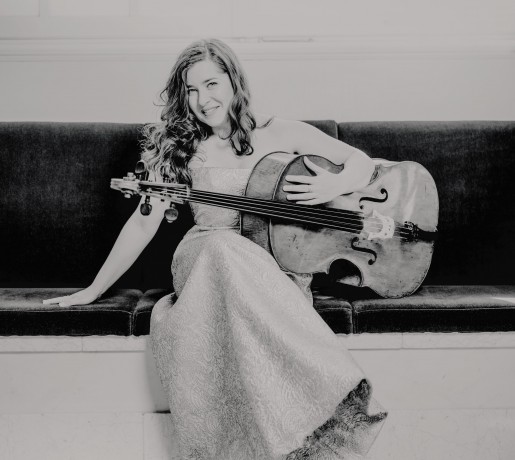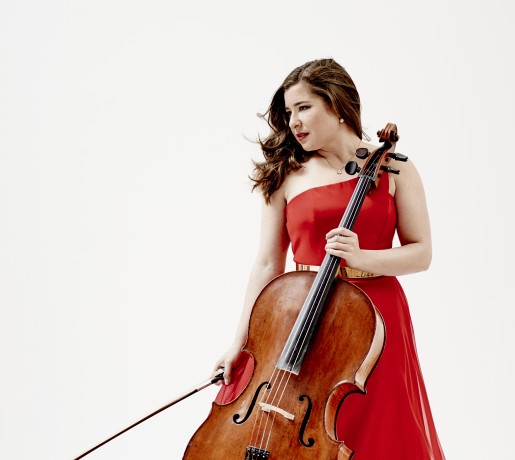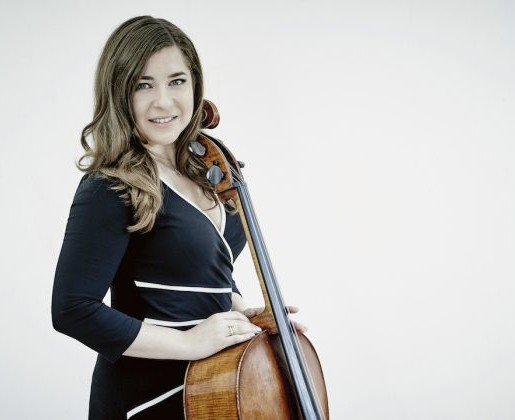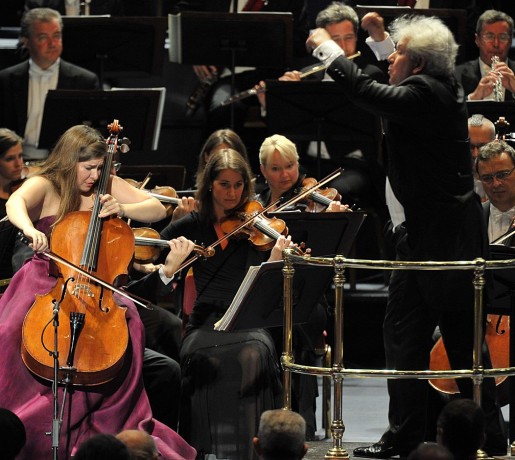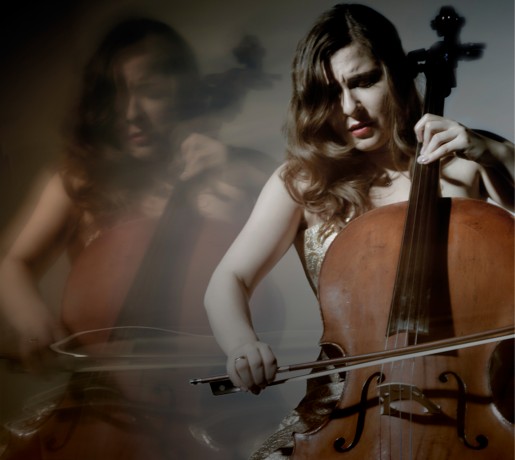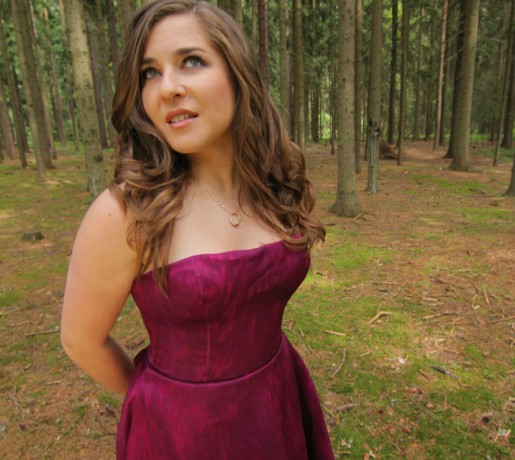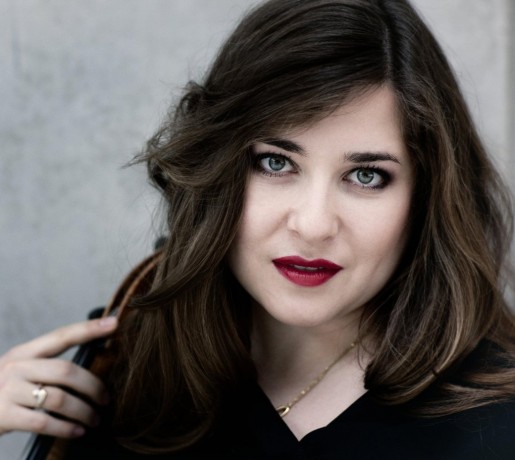The cellos are coming! This summer’s BBC Proms, announced yesterday, will feature no fewer than ten cello concertos, as well as a chamber music concert for multiple cellos. An article about the cello invasion in the new Proms booklet is headlined “No more second fiddle”, which is slightly bizarre — but we know what it means. Alisa Weilerstein certainly does. “Whenever I tell people I play the cello, they always say. ‘Oh, it’s my favourite instrument’,” she says. “Yet most orchestras will programme a maximum of two cello concertos a year — far fewer than violin concertos. And piano concertos are more
A Cellist Breaks Music Into ‘Fragments,’ Then Connects Them
Alisa Weilerstein’s latest project is a series of staged solo recitals that weave Bach’s cello suites with newly commissioned works.
Meet “Fragments,” a project whose first installment — of six — Weilerstein will perform at Zankel Hall on April 1. Certain aspects of it may be familiar. She will be there, playing solo. She will perform a Bach suite in its entirety, and she will play it with her typical, heartfelt passion. She will offer new music: quite a lot of it, selected from works by 27 composers she has commissioned.
But the piece has a profound champion in Alisa Weilerstein, the soloist this week. She is an artist who adroitly channels fierce work with her penetrating, brilliant sound — her performances of works by Kodaly and Shostakovich provide ample proof — and she made a compelling case for the Prokofiev. She dispatched every technical test with astonishing ease and visceral joy, and took obvious pleasure in the music’s often sardonic humor.
New York Times, February 2023
Weilerstein is justly proud of the fact that her diverse group of composers includes nine different nationalities, is gender-balanced, and includes both well-established and emerging artists ranging in age from 26 to 84. The result is an invigorating range of styles.
Toronto Star, January 2023
“An exceptional cellist and distinguished musician, … Weilerstein has carefully considered the path through these works, finding a magnitude of emotion. Weilerstein’s contemporary approach is respectful of the Baroque origins but brings a highly expressive performance.”
Classic Review, April 2020
“The exceptional cellist’s music emerges with sunlit clarity in … a performance that unfolds at its own pace and in its own space, inward-looking yet confident – one captured at exactly the right time. … There are dozens of recordings of these suites to choose from, but this stands up with the best.”
The Guardian, April 2020
“The American’s sumptuous sound and modern technique have greater kinship with Casals and his successors than with ‘period-style’ performers, and her spacious readings have something of du Pré’s emotional style, with shafts of flamboyance in the third suite’s bourrées and the dark fifth’s gavottes. She brings a moving intensity to the sixth suite’s allemande and sarabande. This outstanding artist is a great catch for Pentatone.”
The Sunday Times, April 2020
Weilerstein instantly showed the ferociousness of her artistic spirit, pressing into the rhapsodic opening flourishes to inject fire into her sound. The dominant feature of the opening Allegro is emotive intensity, but Weilerstein found space for playful wit in her playing, as well. The Allegretto was served well by the natural, song-like sensibility of her phrasing, lending sensitivity to an otherwise simple melodic line.
New York Classical Review, November 2019
This was a great week for fans of Alisa Weilerstein or Johann Sebastian Bach.
San Diego Union-Tribune, November 2019
As always, her playing was technically flawless and deeply expressive: her vibrato saturated with meaning, her lyricism slinking and menacingly enigmatic.
The New York Times, November 2019
It was, at times, a frighteningly intimate dialogue, with Khachatryan’s and Weilerstein’s passionate lyrical lines exposed like raw nerves. The result was a beautifully wrenching and emotionally draining musical journey.
The Washington Post, May 2019
When it is just Weilerstein and her cello, you can’t tell the two apart. You can see her seated, hugging her instrument, as a cellist must. But the resonances that resulted in the intimate Wallis had the same kind of presence as might someone sitting next to you and singing in your ear. The sound might easily have come from her voice, her lungs and her being.
Los Angeles Times, November 2018
The soloist was the lyrical, incisive Alisa Weilerstein, who released a flawless recording of the concerto with the Czechs several years ago. Although there was a bit of push-and-pull between her and Mr. Bychkov during the opening Allegro, they eventually settled comfortably into an excellent performance that displayed just how beautifully Ms. Weilerstein can make her instrument sing, and how skillfully this nimble orchestra can deal out dances, fanfares and yearning melodies in quick succession.
The New York Times, October 2018
“You’d go far to find performances of the Haydn concertos that match Alisa Weilerstein’s mix of stylistic sensitivity, verve and spontaneous delight in discovery. Weilerstein is a risk-taker by nature; and the helter-skelter finale of the C major takes impetuosity to the edge. But such is her technical prowess, and the mingled eagerness and skill of the young Trondheim Soloists, that she carries it off, brilliantly. She brings a puckish glee to the lightning passagework in thumb position, yet never short-changes Haydn’s brief moments of lyrical eloquence.”
Gramophone, October 2018
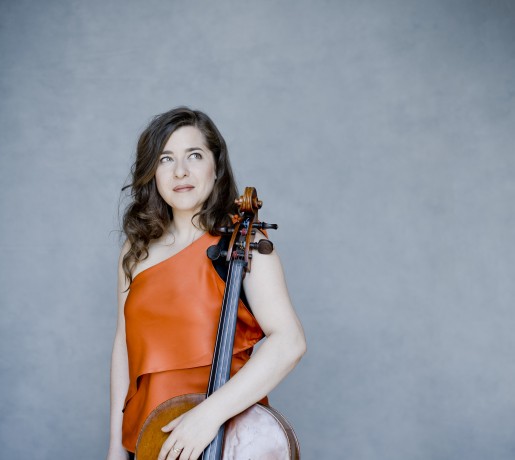
WQXR: The Best New Classical Releases of August 2018
Transfigured Night
“Schoenberg’s music is put into even starker relief on Transfigured Night, a collaboration between cellist Alisa Weilerstein and the Trondheim Soloists, a Norwegian chamber orchestra… Even by Haydn’s sunny standards, his two cello concertos effuse a particular joie de vivre, sharpened by Weilerstein’s bright tone and brisk tempos. From heights this high, it’s difficult to prepare for a drop as precipitous as Schoenberg’s Verklärte Nacht… Schoenberg’s setting is accordingly grim, but Weilerstein and the Trondheim Soloists work hard to pad the blow, rewarding with finely-calibrated dynamics and resonant ensemble playing.”
WQXR, August 2018
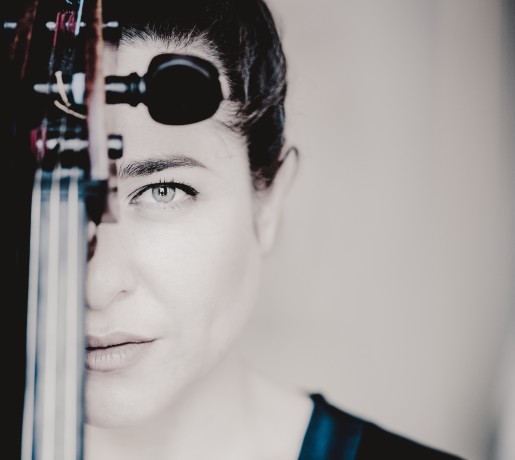
Transfigured Night – Haydn and Schoenberg CD review – captures each shift of colour
Transfigured Night
“The disc cements the ongoing partnership between Weilerstein and the Trondheim Soloists, an orchestra of around two dozen mostly twentysomethings. It’s a cliche to talk of such a young orchestra offering youthful exuberance, but let’s do it anyway – their playing has a buoyancy and energy that in the Haydn form the ideal springboard for Weilerstein’s playing as it leaps and dances in and out of the larger texture. The finales are so fast as to be at times a bit of a scramble, but Weilerstein’s tone rings easily when she wants a melody to sing out. The orchestra is an equal partner, setting up a mood of understated tenderness in the slow movements.”
The Guardian, August 2018
Alisa Weilerstein apparently can make her cello do anything she wants. On Tuesday night in Harris Hall, she applied extraordinarily flawless technique for nearly 3 hours and 30 minutes to some of the most profound music ever written for the instrument: Johann Sebastian Bach’s suites for unaccompanied cello, all six of them in one go, without hardly blinking.
Aspen Times, August 2018
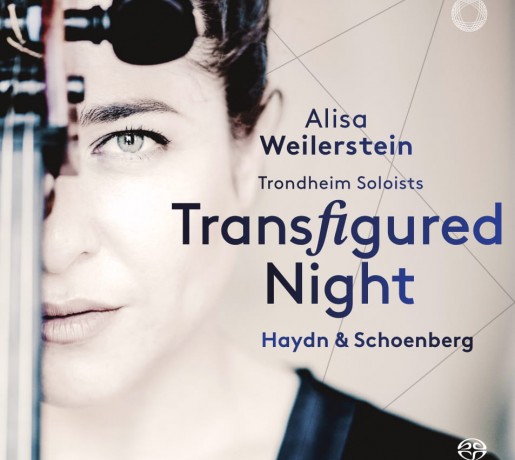
Cellist Alisa Weilerstein on Latest Album, Trondheim Soloists & Bach’s Cello Suites
Transfigured Night
Alisa Weilerstein’s first album for Pentatone—brilliant performances of Haydn’s two cello concertos with an appropriately starry-eyed recording of Schoenberg’s Verklärte Nacht—marks the first recorded fruit of her new multi-season role as artistic partner of Norway’s celebrated Trondheim Soloists. The Haydn concertos alone make this essential listening: Both in command of thrills and a genuine understanding of what Haydn in the 21st century can be if it is spontaneous and free, her performances of the two concertos are without equal in the catalogue.
Strings Magazine, August 2018
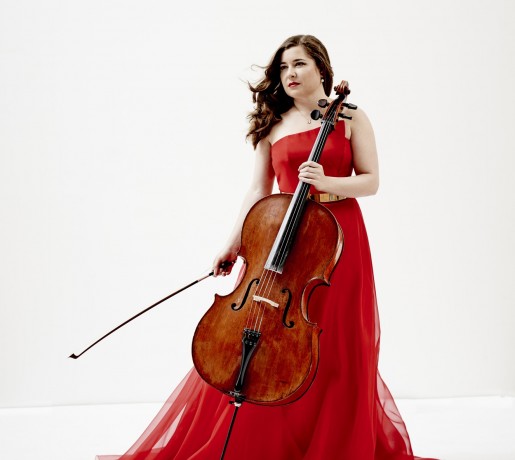
Alisa Weilerstein signs to Pentatone
Cellist to begin partnership with Haydn and Schoenberg
Cellist Alisa Weilerstein has signed to the Pentatone label. The first release under the partnership, due later this year, will pair the First and Second Haydn Cello Concertos with Schoenberg’s Verklärte Nacht. The American cellist will be performing with the Trondheim Soloists, the Norwegian chamber ensemble with which she is Artistic Partner.
Gramophone, January 2018
It’s easy to hear why her playing has so captivated the world—she sings each note with a warmth and care that is at once familiar and unique.
Pittsburgh Post-Gazette, October 2017
It was all excellently done. Though the dynamic cellist Alisa Weilerstein first played Tchaikovsky’s “Rococo” Variations with the Cleveland Orchestra over two decades ago, when she was 13, her performance here had engaging spontaneity and freedom. She brought plenty of grace to the piece’s evocations of rococo style. But during the virtuosic variations, especially the breathless coda, Ms. Weilerstein’s playing had incisive attack, manic energy, and, when called for, rough, bristling tone.
Review: A Nostalgia Trip at the New York Philharmonic
The New York Times, January 2018
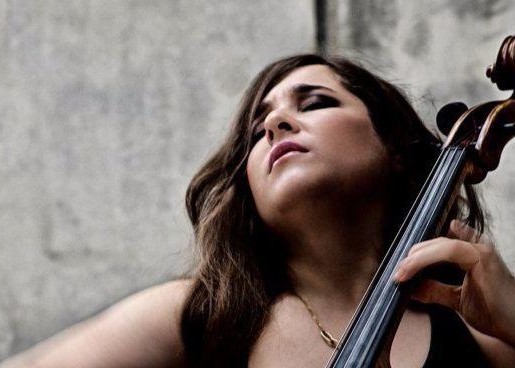
How cellist Alisa Weilerstein found her passion
How cellist Alisa Weilerstein found her passion
“Alisa Weilerstein did not get her start in La Jolla, but it was an early and pivotal step on her musical path. The acclaimed cellist, who will perform at the La Jolla Music Society’s SummerFest on Wednesday, was 4 years old at the time.
‘My parents are musicians, and they were performing at SummerFest in 1986,’ she recalled. ‘We were staying at the house of Chris and Sue Fan, who helped sponsor the festival. They are also the parents of cellist Felix Fan. I listened to him play, and — a little later on — I asked my (pianist) mother for a cello. I started lessons shortly after that. ‘I had no interest in exploring any other instrument. It was a very strong and deep instinct.'”
The San Diego Union-Tribune, August 2017
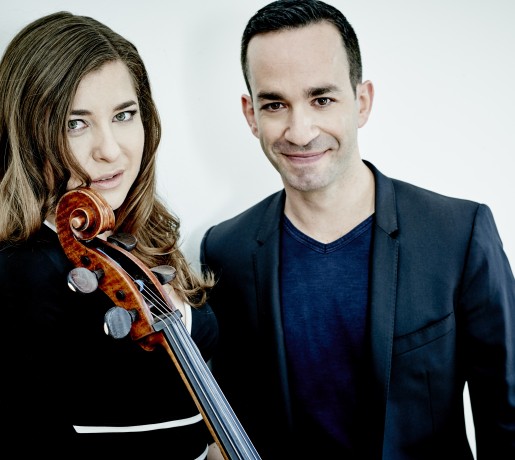
For cellist Alisa Weilerstein, it’s all about balance and connection
“Though her playing sounds flawless to listeners, acclaimed cellist Alisa Weilerstein doesn’t strive for perfection in her performances.
‘I don’t think perfection really exists. It only exists is a very rudimentary sense, to say, “OK, you’ve played every note right.” But for what?’ Weilerstein laughs. ‘It doesn’t mean anything … To be connected intellectually, as well as emotionally — that’s what you strive for. For me, it’s always been about trying to achieve an intellectual and emotional balance. I’m going to be working on that my whole life.’”
Mercury News, April 2017
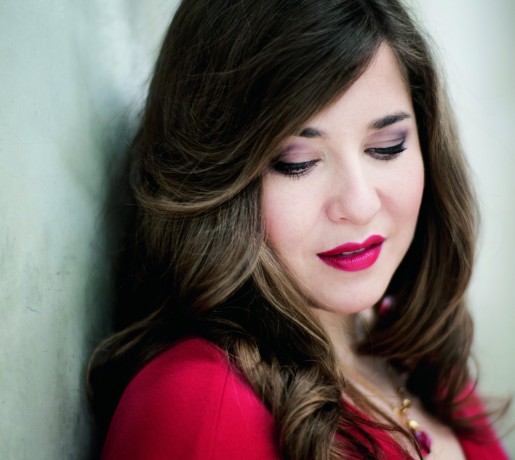
Interview: Alisa Weilerstein on what it means to be a classical musician
“There is no end point. I’m still going to always try to improve as an artist and to be a more insightful interpreter. The goal is always to know these scores better, to truly live with the great masterworks—like the Bach Suites, for example. To keep growing with them.”
The Creative Independent, April 2017
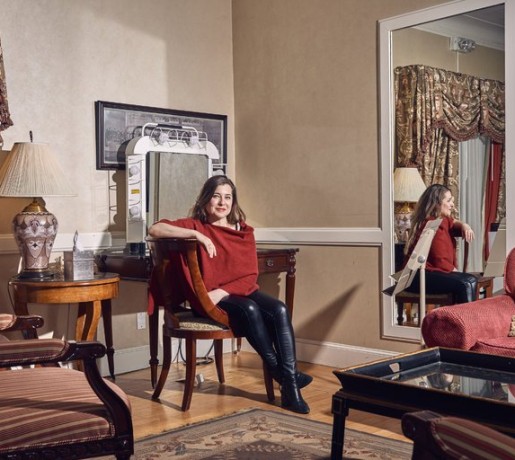
‘It Demands Everything of You’: Alisa Weilerstein on Bach
“Think of a cellist performing all six of Bach’s solo cello suites in a single concert as akin to a mountaineer’s climbing Everest: In itself, it has become a regular thing, but the achievement, not to mention the courage it requires, still has a special status.
Alisa Weilerstein is new to the summit this season, and she brings her Bach to the 92nd Street Y on Saturday. Just after a premiere performance of a new Matthias Pintscher concerto with the Boston Symphony Orchestra last month, she talked through a favorite page of the suites, choosing the second half of the Prelude to Suite No. 4 — a twisting, shape-shifting route from a cadenza back to the E flat of the prelude’s opening.”
The New York Times, April 2017
In sympathetic partnership with Andrew Davis, whose bona fides as an Elgar conductor have been long established, the cellist gave this masterpiece a searching, even eloquent, reading. Together Weilerstein, Davis and the orchestra bought out the music’s autumnal nostalgia and regret with the kind of aching tenderness that is not at all easy to carry off successfully. However carefully the reading had been worked out, it felt wonderfully spontaneous.
Chicago Tribune, July 2016
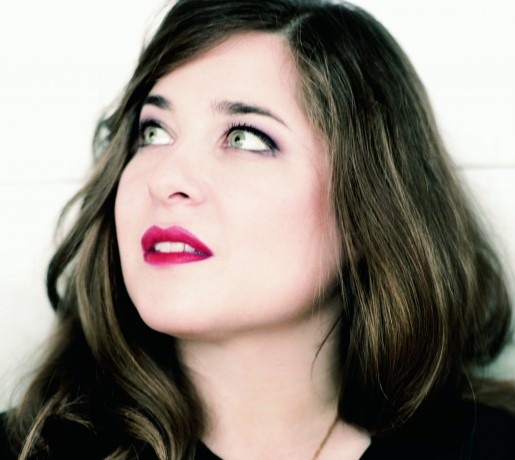
5 of Alisa Weilerstein’s Favorite New Works for Cello
“I’m a cellist, therefore I don’t have the luxury of ‘favorite’ repertoire,” Alisa Weilerstein said after rehearsing a concerto, Outscape, by Pascal Dusapin, which had its world-premiere performances with the Chicago Symphony Orchestra Thursday, May 26, 2016. “I love the standard repertoire very much, but it’s limited, especially if you compare it the violin or the piano.”
Weilerstein is committed to expanding the repertoire by developing relationships with living composers. “I try to take Rostropovich’s example, who had incredible relationships with composers and of course was the muse to Shostakovich and Prokofiev,” she said. “Without him, we might not have these titanic 20th century cello works. Cellists of my generation need to give back and forge relationships with the composers of today to create a strong 21st-century repertoire. It’s not only out of a sense of duty, but I genuinely enjoy working with composers and being a part of the creative process.”
WFMT, May 2016
“If the Chicago Symphony Orchestra must be reduced to playing only one world premiere this season, let it be a new work as absorbing and important as French composer Pascal Dusapin’s cello concerto, “Outscape.” The CSO commissioned the piece for the extraordinary cellist Alisa Weilerstein, who gave it the kind of debut most composers can only dream of achieving…”
Chicago Tribune, May 2016
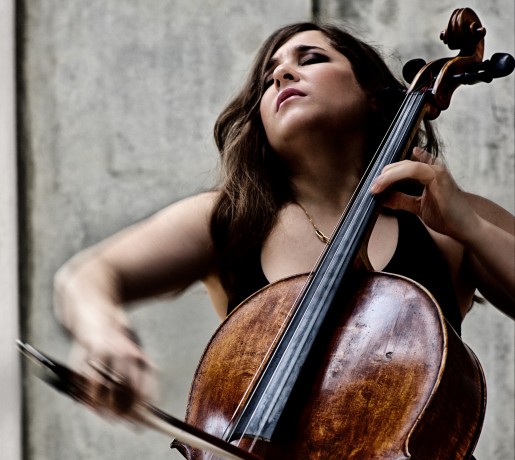
Cellist Alisa Weilerstein Talks Travel and Her Repertoire
Alisa Weilerstein always knew that she wanted to be a cellist. For reasons she can’t explain, she was instantly attracted to the instrument as a small child. Her grandmother made her a series of instruments from cereal boxes when she had chicken pox; she was drawn to the Rice Krispies cello. She graduated to the real thing at the age of four.
Lorna Koski, Women's Wear Daily
“No orchestra in the world has a longer association with the Elgar cello concerto than the LSO, and Weilerstein’s account of the composer’s iconic late period work was the centrepiece of the evening. From first to last, though, her playing possessed a freshness and authority very much of its own, to which the rapport with Heras-Casado’s restrained control of the orchestra greatly contributed. Weilerstein rode the changing moods with eloquence and assurance, mesmerisingly so in some of the fastest passages, but she was always alive to dynamic contrasts and intimate inflections of phrase. The most striking aspect of a highly convincing account was the way Weilerstein managed to keep the balance between Elgar’s reflectiveness, which can sometimes swamp the work, and the composer’s very practical determination to press on.”
The Guardian, January 2016
“Conceived as an unbroken span without pause between movements, it is a curious concerto, technically demanding yet resolutely unshowy. In unsympathetic hands this can be a thankless task, but was thrillingly realized by Alisa Weilerstein, who showed an uncanny ability to approach the notes on the page as if they were a code for unlocking the composer’s precarious state of mind. Few soloists are bold enough to attempt the beginning quite as slowly, or the conclusion quite as fast, as Schumann seemingly intended. Yet Weilerstein brilliantly negotiated the sudden mood swings in which passages of buoyant, breezy confidence collapse into periods of painful introspection.”
The Guardian, January 2016
“The performance is superb: totally secure in technique, rich in sonority, compellingly idiomatic in its rhapsodising, and exhilarating in the passages representing an entire band of village musicians.”
BBC Music Magazine, June 2015

Alisa Weilerstein: From cereal boxes to cello achievement
Sensitive and emotional performances are the hallmark of Alisa Weilerstein, the 32-year-old cellist whom San Francisco Performances presents this weekend at St. Mark’s Lutheran Church in San Francisco. The recipient of an Avery Fisher Career Grant in 2001 and the coveted MacArthur Fellowship in 2011, she has become a champion of contemporary music — as comfortable interpreting contemporary works by Osvaldo Golijov as she is playing Bach.
Mary Ellen Hunt, SFGate
“Weilerstein is truly a phenomenon. It’s rare to hear an orchestra dominated by a soloist with such apparent ease, especially in this piece which seems to take an almost sadistic pleasure in pitting the cellist against impossible odds. At one point the cellist’s interjections have to balance a series of implacable thumps on the bass drum, at another it emits a high-pitched scream, pianissimo, above the entire orchestra, before descending in vertiginous leaps.
These moments can seem febrile, but Weilerstein’s technique was so rock-solid and her tone so magisterial they sounded epic. Everything was super-charged with significance, whether it was the dry single notes that began the piece or the constant reappearance of a yearning phrase, sounding like a window onto another, better world.”
The Telegraph, March 2015
“It takes an exceptionally responsive cellist to make sense of it all, and Alisa Weilerstein proved herself to be one of the few who can. Her playing ranged from tranquil passages of sensual beauty to rough, demotic outbursts performed with the furious expression of one who has been rudely awoken from a beautiful dream.”
The Guardian, March 2015
“With her knack for inhabiting a work, she always seems to invest whatever she plays with freshness and directness of expression.”
New York Times, December 2014
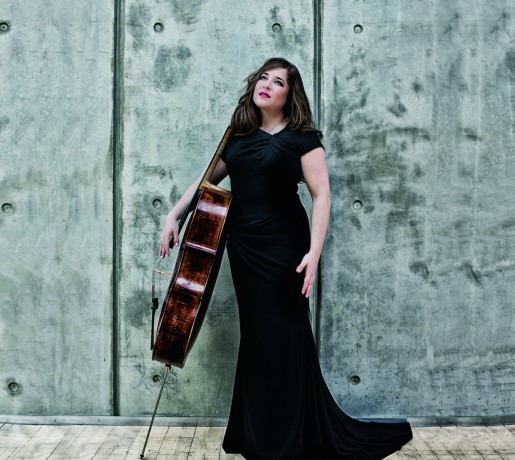
US cellist Alisa Weilerstein brings Dvorak to the Proms
The Dvorak Cello Concerto is one of the most performed, and most recorded pieces for the instrument. Since its premiere in 1896, it has drawn some of the world’s greatest instrumentalists into its orbit. So what gives this work its enduring appeal? Ahead of her performance of the Dvorak at the Proms on 24 August, US cellist Alisa Weilerstein explains the concerto’s continuing attraction.
Jason Caffrey, BBC News
“Alisa Weilerstein’s stellar performance Thursday night with conductor Jaap van Zweden and the CSO provided about as convincing advocacy for this problematic work as one is every likely to hear. The cellist brought a fragile vulnerability and hushed expression to the lyrical passages, most affectingly so in the tender theme of the central movement. Yet the interior moments were balanced with an unbridled virtuosity, the soloist throwing off the work’s many tortuous technical landmines at lightning tempos, with van Zweden and the orchestra providing full-tilt support.”
Chicago Classical Review, May 2014
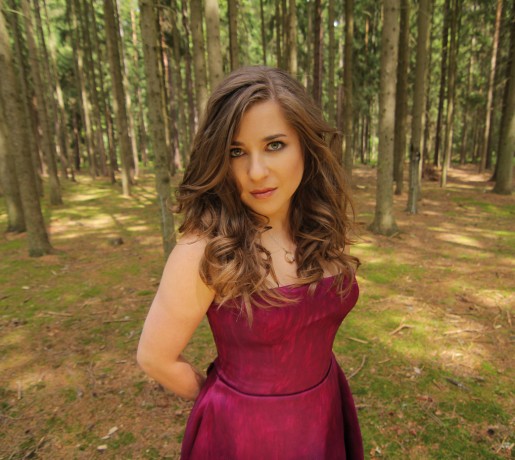
WNYC’s The Leonard Lopate Show
Cellist Alisa Weilerstein is widely recognized as one of the great classical musicians of her generation, and in 2011 she received a MacArthur “genius” grant. She discusses performing on June 6 at the New York Philharmonic’s Biennial, the orchestra’s contemporary music festival, where she will give the NY premiere of Mattias Pintscher’s Reflections on Narcissus.
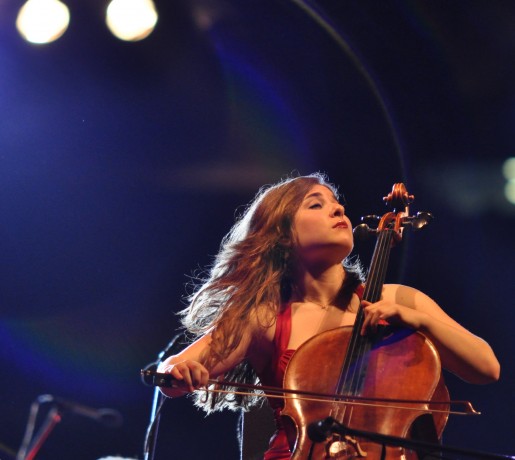
A Matter of Interpretation
American cellist Alisa Weilerstein, a recipient of a MacArthur fellowship in 2011 who enjoys a prominent international career, employs these approaches and more. She once became so engrossed in playing Krzysztof Penderecki’s second cello concerto that she needed five minutes of solitude backstage before greeting admirers.
Barbara Jepson, Wall Street Journal
“Weilerstein’s cello is her id. She doesn’t give the impression that making music involves will at all. She and the cello seem simply to be one and the same.”
Los Angeles Times, May 2013
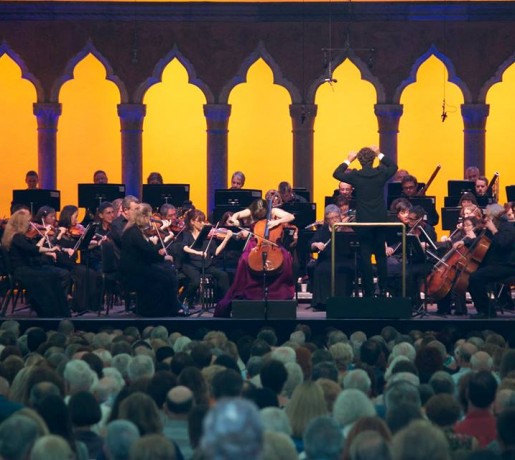
Alisa Weilerstein: Taking it to the bridge
The recording, like the 30-year-old American cellist, is supercharged with virtues that speak to the better part of human nature. Weilerstein’s take on two concertos – one a warhorse, the other little known outside the walls of the modernist music ghetto – found instant five-star favour with reviewers. Her reading of Elgar’s Cello Concerto has already been ranked alongside Jacqueline du Pré’s legendary recording of the work almost half a century ago, the benchmark by which all others have been measured, and usually found wanting. Weilerstein also set down a strong marker for new music’s cause by pairing Elgar with Elliot Carter’s Cello Concerto, completed just before his 92nd birthday in 2000.
Andrew Stuart, The Independent
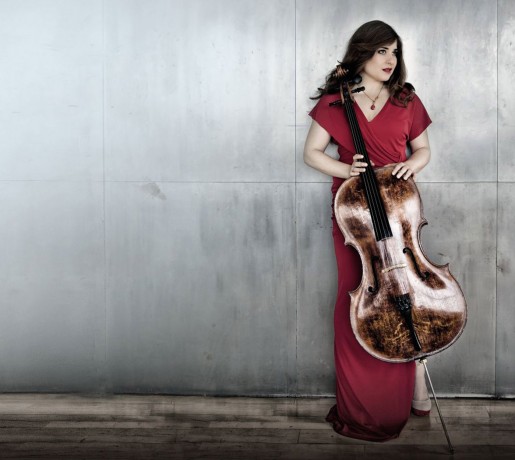
Alisa Weilerstein talks about recording Elgar’s Cello Concerto with Daniel Barenboim
“I felt so lucky to be playing with them. Their quality of sound, flexibility, and connection emotionally, musically and structurally has everything you could want. This orchestra has worked with Barenboim for 20 years, and of course rehearsing in this very rigorous and detailed way, you really get to know the players and the psychology behind everything. Barenboim was equally demanding of them as he was of me, really focusing on bringing out the different voices. We went deeper each day so that by the time we got to the final concert, we could be totally immersed and not have to think about annoying technical issues. That was the most gratifying part. It gave us freedom to really let go.”
Gramophone
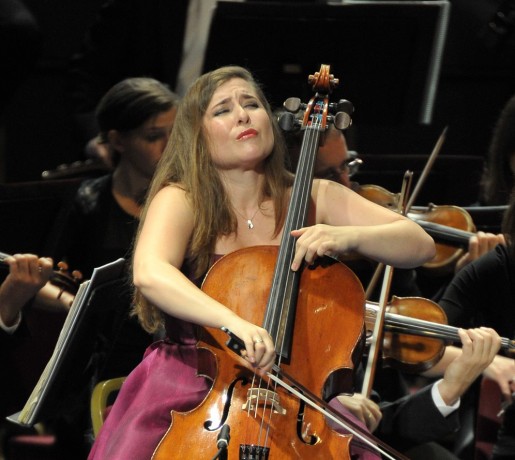
Alisa Weilerstein Plays Elgar: Exploring Music With An Intense Past
British composer Edward Elgar wrote his cello concerto in 1919 — soon after the end of World War I — and it’s suffused with the dark weight of that war. All Things Considered host Melissa Block sat down with 30-year-old American cellist Alisa Weilerstein to listen to Weilerstein’s new recording of the piece, which she made with the Berlin Staatskapelle and conductor Daniel Barenboim.
NPR
“Every once in a while you come across a soloist who redefines your conception of a piece of music. Dmitri Shostakovich’s Cello Concerto No. 1 is an extraordinary work, but it was only after this performance by Alisa Weilerstein that I realized quite how extraordinary it really is.”
Bachtrack.com, June 2012
“Weilerstein’s cadenza was so captivating that you had to remind yourself to breathe, and her projection and intonation were phenomenal.”
ClevelelandClassical.com, May 2012
“The brilliant young American cellist Alisa Weilerstein…was the compelling soloist in a first-rate performance of Shostakovich’s Cello Concerto No.1…between Ms. Weilerstein’s impassioned, intelligent playing and the richness and color of the ensemble, this was an organic and arresting account of a great work.”
New York Times, April 2011
“Mstislav Rostropovich was the dedicatee of Shostakovich’s First Cello Concerto, and his performances usually outdistanced those of anyone else. Not on Wednesday. The young American Alisa Weilerstein showed a deep, dark intensity united to biting drama… her sense of repose gave access to a new level of self-communing. Completely assured in the quiet high writing, Weilerstein shone especially in the long cadenza, with which she took her time, achieving singular poetry.”
Chicago Tribune, April 2011
“Shostakovich’s alternately wry, acerbic, sorrowful Cello Concert No.1…delivered its requisite punch in a keen orchestral reading, crowned by a magisterial performance by cellist Alisa Weilerstein. This score sounded as natural a fit for Weilerstein’s temperament as it did for an orchestra [St. Petersburg Philharmonic] that has Shostakovich’s music in its DNA. She offered trenchancy and atmospherically gritty playing when called for but, just as tellingly, was able to delve probingly into the solo part’s deep and troubled vein of introspection. Indeed, like Temirkanov, this is a musician who understands the value of fraught silence.”
Washington Post, April 2011
“She tore into the concerto with a ferocity that all but left the orchestra stunned. She is not undisciplined. She projected a rich lyrical tone when she wanted to or when Shostakovich wanted her to, and she played as if lost in reverie.”
Los Angeles Times, March 2011

Cello virtuoso Alisa Weilerstein is always at the head of her class
Alisa Weilerstein is used to leading a double life. As an accelerated high school student, she was already a concertizing cellist who lugged her unwieldy instrument on and off trains and planes. As a Columbia University undergrad she wrote philosophy papers while airborne, traveling from one performance venue to another. But make that a triple life. The 28-year-old New Yorker, growing toward a stellar career, is also diabetic and has been since age 9 — all of which makes her over-achievement understandably remarkable.
Donna Perlmutter, Los Angeles Times
“Weilerstein whipped her end of the music into a frenzy of angst and anger, a stunning reflection of exactly what Shostakovich certainly had in mind. Her intensity and drive set the nervous first movement in motion from the first notes, building to ferocious climaxes. Yet she lacked nothing in technical clarity, every note articulated with bang-on intonation…even in the high harmonics in the slow movement. Her sound in the lyric passages was warm and inviting…This was an incendiary performance of this music, as riveting as any cellist and orchestra I have ever heard.”
Seen and Heard International, March 2011
“A phenomenal young cellist, Alisa Weilerstein, pretty much stole the evening with her extraordinary account of Shostakovich’s Cello Concerto No.1…Weilerstein was the complete musical actress whose orations from hushed and furtive and fearful to ferociously assertive were gripping in the extreme. We must cast our minds back to Rostropovich to remember an account of the slow movement as potent and technically accomplished as this. The sad song of the opening emerged as from a frail old voice and Weilerstein’s extraordinary subito piano effects and the way she could drain colour and sound to near-inaudibility (as in the passage in ghostly harmonics) and yet demand attention from the farthest reaches of the hall were astonishing. The huge cadenza was truly her “mad scene” and might just be the most disturbing thing we’ve heard all season.”
The Independent, August 2010
“Alisa Weilerstein gave a riveting performance in Shostakovich’s First Cello Concerto…the young American not only chose a radically different path through the music—more soft-edged in timbre, less overtly freighted with emotion, and certainly less angry—but traversed this epic work with suppleness and authority.”
The Sunday Times, August 2010
“Weilerstein seemed to implicitly answer the challenge Isaac Stern used to pose time and again to technically gifted young players: Show the audience not just how you make music but why.”
Boston Globe, May 2008
“In a sense Ms. Weilerstein is a throwback to an earlier age of classical performers: not content merely to serve as a vessel for a composer’s wishes, she inhabits a piece fully and turns it to her own ends. ..True, an artist’s animated stage comportment hardly guarantees an insightful performance. But in Ms. Weilerstein’s case, what you see perfectly meshes with what you hear.”
New York Times, December 2008
